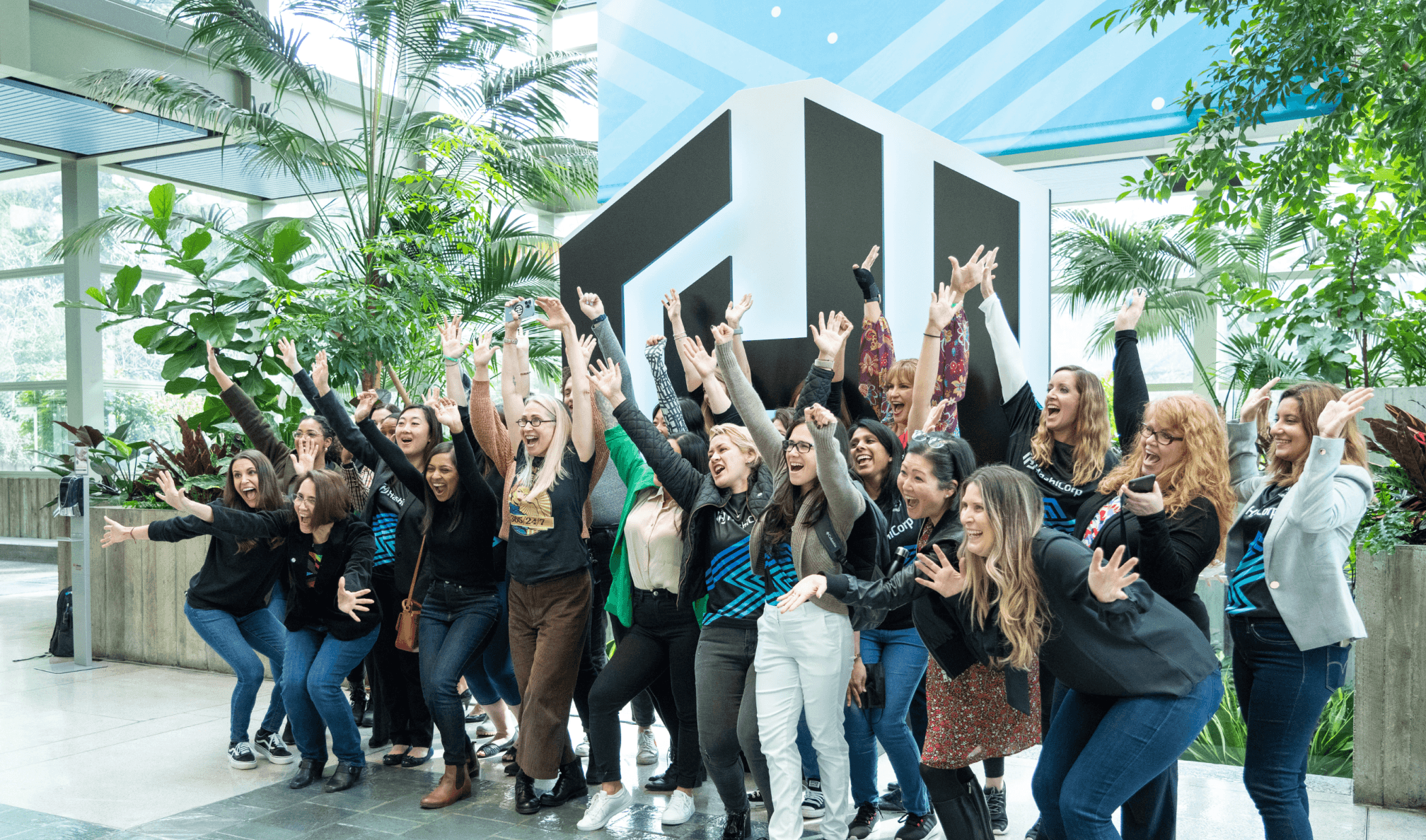How HashiCorp Employees Celebrate Lunar New Year
HashiCorp employees from around the world share how they’re celebrating Lunar New Year and the cultural traditions they practice.
Considered one of the most important cultural, social, and economic holidays for billions around the world, Lunar New Year (also known as Chinese New Year, Seollal, and Tết) is celebrated in countries like China, Hong Kong, Taiwan, and Vietnam — as well as countries where many HashiCorp employees work, like South Korea, Indonesia, and Singapore.
The Lunar New Year symbolizes the first day of the Lunar Calendar and is determined by the first full moon of the new year. This year, the holiday falls on January 22 and will last for 15 days after. It follows what is called the Chinese Zodiac, where every year represents one of 12 animals. The animals — the rat, ox, tiger, rabbit, dragon, snake, horse, goat, monkey, rooster, dog, and pig — all represent various personality traits. You can learn more about your own personal Chinese Zodiac animal by matching your birth year to its respective zodiac animal. 2023 marks the year of the rabbit: the symbol of patience, luck, peace, and success. However, 2023 is the year of the cat for people from Vietnamese culture.
We asked our team members from APJ and from across the world how they’re celebrating Lunar New Year and the cultural traditions they practice.

»Introduce yourself! What do you do at HashiCorp?
Kimberly Lac: Hi, I’m Kimberly, and I currently work as a Communications Associate at HashiCorp. I interned in 2021 and started my early career here after graduating from college.
Emily Wong: Hello! My name is Emily, and I’m an Associate Compensation Analyst at HashiCorp. I was an intern in the Summer of 2021 and started working at HashiCorp after graduating!
Carris Chen: Hi! I'm Carris and I’m a People Business Partner here at HashiCorp.
Fiona Teo: Hi, I'm Fiona, currently working as People Operations Coordinator at HashiCorp.
Eric Zhuo: Hello, I'm EZ and I'm a Field Marketer at HashiCorp's Demand Gen team based in Singapore.
»What is your cultural background and where are you currently located?
Kimberly: I’m Vietnamese-American and my parents immigrated to the United States following the Vietnam War before I was born. I’m currently based in Southern California.
Emily: I’m a Chinese-American in the Bay Area of California. My father immigrated to the United States when he was 11 and my mother was born in California.
Carris: I'm born and bred Singaporean Chinese, where I’m currently based out of.
Fiona: I'm a Singaporean Chinese staying in Singapore.
Eric: I was born in Singapore and have lived in the multi-racial city-state of Singapore my whole life, where I get to experience a good variety of cultures from other races while being allowed to freely practice my cultural beliefs as a Chinese.
»What do you do with your friends, family, or loved ones on Lunar New Year?
Kimberly: On Lunar New Year my family and I usually meet up with our entire family and have a gathering that lasts from day until night. We like to cook, eat, and catch up with everyone.
Emily: We have a big feast with our extended family. The married adults also give the children and unmarried relatives money in red envelopes called 紅包 hóngbāo — the amount has to be an even number, as odd is considered bad luck. Afterwards, we set off firecrackers to ward off evil spirits.
Carris: Reunion dinners are a must, and for many, this usually involves having hotpot. Stemming from long ago, the purpose of reunion dinners is to bring the family together, even if they’re based in different locations. I find this meaningful, and for my family, hotpot for reunion dinner is something we've been doing for many many years.
Fiona: On the eve of Lunar New Year, families will usually gather for reunion dinner. We will eat and catch up with everyone.
Eric: In the days leading to the Lunar New Year, we’re supposed to give our house a big clean up — what we called "Spring Cleaning." As a child, I hated this tradition as it meant a lot of physical chores such as scrubbing the floors and throwing out old and unused items. But now my favorite part of the new year is when my family and I take a couple of hours each day to clean a part of the house together. At times, we’ll come across old photos or items of sentimental value and can all reminisce in sweet memories from the past.
»What are the traditions or customs you normally practice around this time of year? Are there any superstitious traditions?
Kimberly: In Vietnamese culture it’s common to wear traditional gowns called ao dài. People normally wear red as a sign of good luck and fortune to bring into the new year. We also exchange gifts of money called lì xì for children and the elderly, which is cash in red envelopes. It’s also customary to bow to your elders and give thanks to them. As for superstitions, it's important not to break anything (like plates, dishes, cups), which could mean separation or loss for the new year. It’s also recommended to not get a haircut during this time — you would be cutting away all the good luck.
Emily: We clean the house before Lunar New Year so we don’t sweep away good luck the day of. We hang the Chinese character for fortune (福 fú) on our front door upside down, because the word for “upside-down” (倒 dào) and "to arrive" (到 dào) sound the same. Therefore, it means “fortune arrives.” Since the Lunar New Year also signals a new zodiac animal, we decorate the house with small statues of whichever zodiac animal’s year it is. This year is the year of the rabbit! I also wear red, which is a sign of good luck, and avoid wearing black, which is associated with funerals. We also avoid washing or cutting hair on the first day of the Lunar New Year since it’s said to wash and cut your fortune away.
Carris: There are tons of traditions, customs, and superstitions! For example, it’s inauspicious to wear black during LNY as it’s usually a color for funerals. Red is the auspicious color but for me personally, I go to extra lengths to avoid wearing red on LNY so as not to be too cliché. Red packets (ang pow) are given by the elders to the younger generation as a form of blessing for the year ahead. In return, the younger generation will wish the elders a good life ahead. Mandarin oranges are usually exchanged alongside the red packets. Superstition-wise, it’s said that one should not use the broom or sweep the floor on the first day of LNY or you'll be sweeping away your good luck for the year!
Fiona: During Chinese New Year, families will gather and go to each other's house for visitations. We’ll wear new clothes and bring along two mandarin oranges for the visitations. Elders and married couples will usually give out red packets to the kids and unmarried ones when we say new year greetings together with the oranges. It’s a way of blessing, fortune and good luck.
Eric: In our family tradition, we’re not to talk about death and sickness when we gather with the family. Whenever we do, we’ll incur the wrath of the elderly at home. I remember we were also told as kids to keep the doors and gates to our home open wide to welcome the God of Fortune who will bless us with a good year filled with wealth and prosperity. We’re also not supposed to use the broom as we will sweep away all the good luck.
»Is there any cultural food you prepare or eat during the Lunar New Year celebrations?
Kimberly: Bánh Chưng and Banh Tet are traditional Vietnamese sticky rice cakes that have a long history and folklore attached to them. We also eat Mut, which is a collection of dried fruits, nuts, and candy.
Emily: We eat dumplings, fish, longevity noodles, and a sweet glutinous rice cake called 年糕 (niángāo), which translates to “year cake.”
Carris: Not in particular, I guess it depends on the dialect group you're from. I'm Shanghainese by dialect and it has become a tradition starting from my grandparents to have Shanghainese-style rice cake on the first day of LNY. We also have the sticky rice cake that is sweet, and we will eat that too.
Fiona: Bak kua and traditional cookies like pineapple tarts and love letters biscuits.
Eric: Every year we prepare a salad-ish dish called Yusheng for a Lohei session with the family. Each ingredient of the dish is an auspicious symbol. The dish includes shredded carrots symbolizing Hong Yun Dang Tou (incoming good luck), a generous sprinkle of crispy crackers symbolizing Bian Di Huang Jin (fortune and wealth everywhere), and topped with plenty of salmon and/or abalone slices symbolizing Nian Nian You Yu (year after year of living in abundance). There are a total of 17 ingredients found in traditional Yu Sheng and nowadays many choose to buy ready-made ones, but our family still makes this manually together, taking this opportunity to bond (and sometimes gossip!) with the extended family.
»Are you planning on attending any events in your local area to celebrate?
Kimberly: I’m planning on visiting Little Saigon in Orange County, California. Little Saigon is one of the largest Vietnamese-American communities in the United States and there are many celebrations in the area, such as a Lunar New Year festival and night market.
Emily: I’m planning on attending the San Francisco Chinese New Year Festival and Parade, which is held throughout the Lunar New Year. They have lion dances, snack vendors, and release firecrackers.
Carris: No events in particular, but I’ll be attending gatherings with family and friends.
Eric: In Singapore, "Chingay" is a street parade that happens every Lunar New Year where streets are closed for colorful and brightly lit floats parade the streets. There are usually performers on the floats dressed in traditional or specially designed costumes, dancing to traditional tunes. What's special about this event is that the performances are not just by the Chinese or for the Chinese. Due to the deeply rooted multi-racial culture in Singapore, we also get to see performances from the Malay, Indian, and Eurasian communities to jointly celebrate Lunar New Year as a nation, without differentiating ourselves by our racial backgrounds.
»How do you say “Happy Lunar New Year” in your native/local language?
Kimberly: Chúc mừng năm mới!
Emily: 新年快樂 Xīn Nián Kuài Lè!
Carris: Xin Nian Kuai Le!
Fiona: 新年快乐
Eric: In Chinese, we will say "Xin Nian Kuai Le!"
Sign up for the latest HashiCorp news
More blog posts like this one

Ace your Terraform Professional exam: 5 tips from certified pros
Three HashiCorp Certified: Terraform Authoring & Ops pros share their advice for preparing for and completing the certification exam.

From DevOps engineer to solutions engineer: Bridging the gap between technology and business
Read about one engineer’s lessons learned from their days as an application and DevOps engineer transitioning to becoming a solutions engineer at HashiCorp.

The 2025 HashiCorp Principle Awards
Meet the winners and runners up for HashiCorp's nine core Principle Awards.